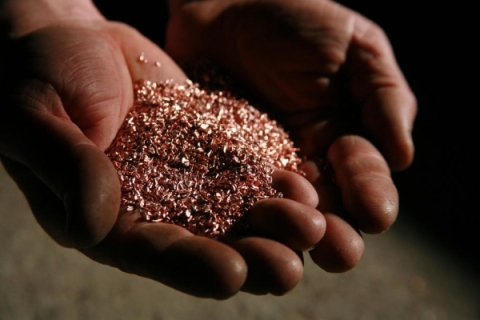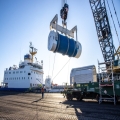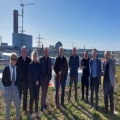Leading resource management company, Veolia, has introduced an innovative solution to salvage copper from electrical cables in decommissioned nuclear facilities. By developing a new method of safe handling to dispose of the contaminated plastic coating that protects the core from radiation, the new process reduces the treatment time and cost, and preserves the valuable copper for recycling. The process represents a significant carbon saving as capturing the copper for recycling saves around 85% of the emissions associated with copper sulphide extraction from large open pit mines.
Estimates show that standard thin gauge to heavy duty electrical cables will make up hundreds of tonnes of waste during the planned decommissioning across various projects. An initial trial by Veolia processed over 12 tonnes of cables that were safely handled and stripped of the contaminated plastic coating, cut and packaged into drums for safe treatment using high temperature incineration. The resultant exposed cores were tested for radioactivity and found to be safe, producing four tonnes of copper for recycling.
Copper is a key component in the modern world and is used in a vast range of applications ranging from electrical equipment such as computers, TVs and mobile phones, household white goods, motors, generators, vehicles, power generation, construction, and plumbing, to cookware, coins, musical instruments and even sculptures. Despite being a common metallic element with trillions of tonnes in the earth’s crust, only a tiny fraction of these copper reserves is economically viable with present-day prices and technologies. Estimates of copper reserves available for mining vary from 25 to 60 years.
With global operations spanning across various projects including the Magnox decommissioning programme, Veolia provides turnkey solutions from initial surveys and characterisation through decontamination, dismantling and segregation, to packaging and appropriate disposal using a methodology that ensures decommissioning projects are executed safely. These operations use a range of technologies and services for facility restoration, decommissioning of plants, and the company has pioneered many best practices for the safe demolition of complex structures within live facilities, and was the first demolition company to use explosive techniques for the demolition of a facility on a UK nuclear licensed site.
- 56 views






